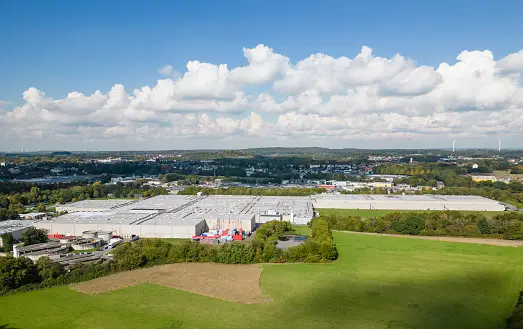
Arrowhead Environmental | Water Treatment for Meat Processing Plants in Missouri
Water Treatment for Meat Processing Plants in Missouri

Water treatment is a crucial and often overlooked aspect of meat processing plants in Missouri. Like many others, the state is home to a thriving meat processing industry, which contributes significantly to its economy. However, the industry’s operations require vast amounts of water for various processes, including cleaning, cooling, and as an ingredient in their products. As a result, the need for efficient water treatment in these facilities is of paramount importance for several reasons.
Legal Aspect
First and foremost, water treatment is essential to meet environmental regulations and ensure compliance with state and federal laws. Meat processing plants produce substantial quantities of wastewater, which can contain various contaminants, including organic matter, pathogens, and chemicals. Failing to treat this wastewater properly can lead to severe environmental consequences, such as water pollution and the degradation of aquatic ecosystems. In Missouri, as in many states, stringent environmental regulations are in place to safeguard the quality of water sources, and meat processing plants must adhere to these regulations to operate legally.
Public Health
Moreover, water treatment is crucial for safeguarding public health. Contaminated water can be a source of foodborne illnesses and other health risks. Inadequate water treatment at meat processing plants can lead to the transmission of diseases and pathogens, both through contaminated water sources and via the meat products themselves. By implementing effective water treatment processes, these plants can significantly reduce the risk of outbreaks and protect consumers from potential harm.
Food Safety
Water treatment also plays a pivotal role in maintaining the quality and safety of meat products. Water is a primary ingredient in many meat processing operations, used in the production of sausages, ground meats, and other products. When the water used is not adequately treated, it can introduce impurities and off-flavors into the meat, negatively impacting its taste and texture. Moreover, untreated water can lead to rapid bacterial growth, accelerating spoilage and reducing the shelf life of meat products. By investing in water treatment, meat processing plants can ensure the consistency and safety of their products.
Arrowhead Has It Covered
Arrowhead Environmental is a company that specializes in providing environmental services and solutions. They offer a range of options to address various environmental challenges and help organizations meet regulatory requirements. Here’s how Arrowhead Environmental provides options to its clients:
- Tailored Solutions
- Comprehensive Services
- Consultation and Assessment
- Advanced Technologies
- Regulatory Compliance
- Sustainability Solutions
- Emergency Response
- Training and Education
- Cost-Effective Alternatives
- Continuous Monitoring and Improvement
The Perfect Solution
Arrowhead Environmental stands as a reliable and versatile partner in addressing a wide spectrum of environmental challenges. The company’s commitment to providing tailored solutions, leveraging advanced technologies, ensuring compliance, offering expert consultation, and suggesting waste management alternatives demonstrates its dedication to meeting the diverse needs of its clients. Furthermore, the emphasis on cost-efficiency, long-term sustainability, and educational resources underscores Arrowhead Environmental’s holistic approach to environmental services.
Through these multifaceted offerings, Arrowhead Environmental assists clients in achieving their environmental goals and contributes to a more sustainable and responsible approach to environmental management.



